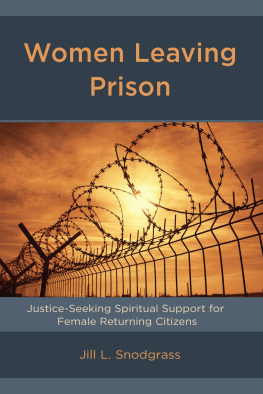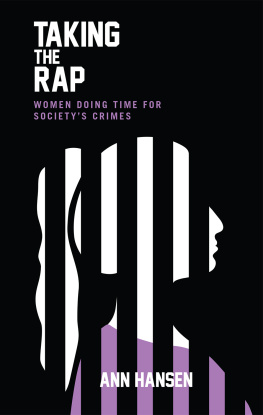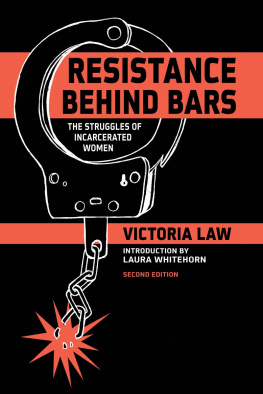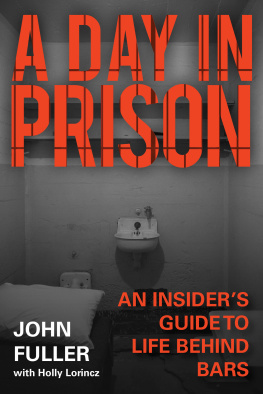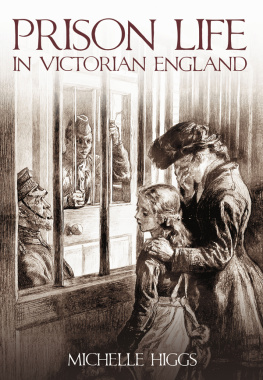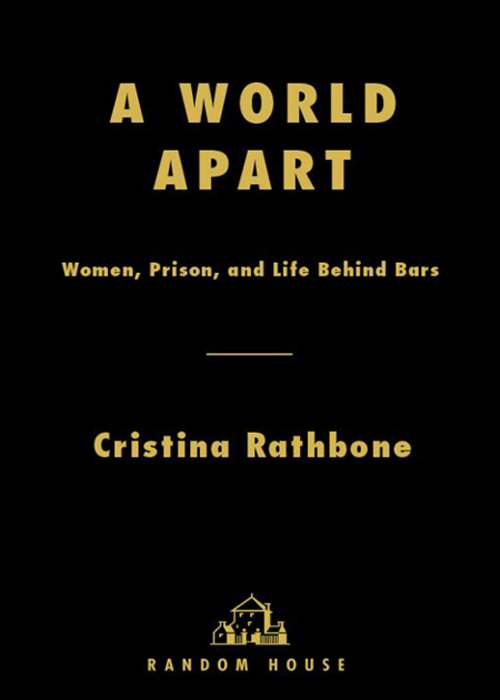
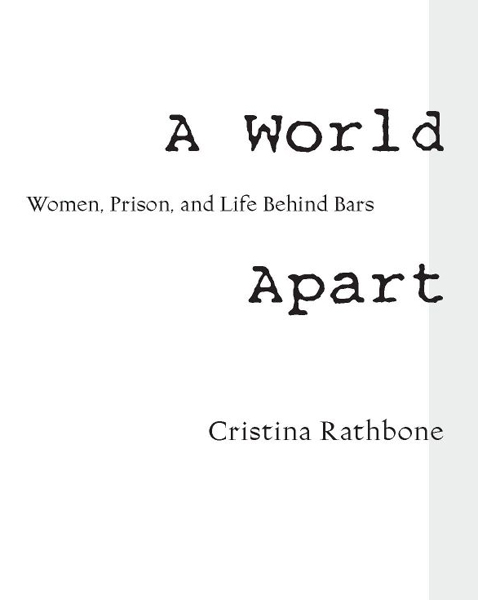

Table of Contents
For Jack and Lucas
(the greatest boys in the world)
(Oh heart, I would not dangle you down into the sorry places, but there are things there as well to see, to imagine.)
Mary Oliver, The Leaf and the Cloud
PRAISE FOR A World Apart
Beautifully written... It took years and a fierce legal battle for Cristina Rathbone to gain access to MCI-Framingham, a Massachusetts womens prison. But her struggle turned out to be well worth it.
O: The Oprah Magazine
By turns illuminating and enraging, A World Apart is a book of hard-won stories about hard-luck lives. Cristina Rathbones dogged insistence on letting some light into Framingham prison, despite stone-walling by fearful officials, filled me with admiration. It also taught me things. Women in prison are different from men, and this unsentimental account shows how.
TED CONOVER, author ofNewjack: Guarding Sing Sing
This is an important, hard-won book throughout which the deepest meanings of commitment come to bear: the unjust commitment of women to our nations prisons, the womens commitment to their families and the risks of hope, and, as strikingly, Cristina Rathbones commitment to her profession and her craft.
ADRIAN NICOLE LEBLANC, author of Random Family
A World Apart should be required reading for all Americans and especially those concerned about gender and justice. Through compelling narratives of inmate lives, interspersed with historical background, Rathbone exposes the high personal and social costs of poverty, violence, and sexual coercion.
ESTELLE B. FREEDMAN, Stanford University, author of Their Sisters Keepers: Womens Prison Reform in America, 18301930 and Maternal Justice: Miriam Van Waters and the Female Reform Tradition
Prologue
Its important that you know this: except for the visiting room, which I still go to occasionally, I have seen little of the prison I write about in this book. Despite nearly five years of research, two successful lawsuits, and countless trips to court, the Massachusetts Department of Correction continues to deny me access.
My long fight for access to MCI-Framingham began in January 2000. I felt hopeful about my chances back then. The departments book of regulations acknowledged that conditions in a state correctional institution are a matter of interest to the general public. It further stated that the department has a proactive posture when communicating with the news media and listed only five conditions under which media access to its facilities could be deniednone of which applied to my case.
In the end, however, the DOC came up with a reason entirely unrelated to those published in its book of regulations. After months of consideration, it concluded that my work might upset the victims of the women I write about, and it was on these grounds that they finally denied access. Perhaps because the state had long been under a court order for failing to take care of even the most basic of crime victims rights, the sudden concern was hard to take seriously. Nonetheless, its position stood. This project had effectively been killed.
Almost every major periodical in the country has had to shelve prison stories because access was denied. Despite attempts by press organizations to rally against such restrictions, the trend to exclude media from prisons continues to grow apace with the system itself. In 1998, for example, California, which has the nations third-largest prison system, banned all face-to-face interviews with, as well as confidential correspondence to, every inmate in its system. Arizona followed suit. Pennsylvania maintains a blanket ban on all news-media contact with inmates, as does South Carolina, whose regulations state that news media interviews with any inmate... will be strictly prohibited. Alaska insists on officials monitoring interviews. Connecticut instructs journalists to include in their requests a statement of any perceived benefit to law enforcement agencies, and Mississippi states that consideration will be given only to media requests to develop stories portraying rehabilitative efforts.
Most states are less severe in their restrictions, at least on paper. Alabama, North Carolina, Indiana, Kansas, Louisiana, Nevada, and Massachusetts all officially allow media access to their prisons as long as interviews pose no threat to security. But this often means little in practice. Idahos written policy, for example, allows interviews in all of its facilities, but the states corrections director did not approve a single interview request for five years. As he told a reporter: We look for compelling reasons why the interview should take place. How will the interview benefit the department?
The same is true for Massachusetts. Despite an annual budget of close to $860 million, its Department of Correction operates with an almost complete lack of oversight and a level of fiscal opacity that would be unacceptable in any other government agency. On matters of policy, the commissioner of corrections (herself a political appointee) answers only to the governor. There are currently no legislative checks to discourage the abuses of power that such a closed system can so readily promote.
Even the Department of Correction has to operate within the law, however, and when the American Civil Liberties Union concluded that its grounds for denying me access were unconstitutional, another avenue of approach opened up. With their help, and that of an energetic young partner at one of Bostons leading corporate law firms who did the work pro bono, I brought suit. Ten minutes before the case was due to be heard, and a full nine months after I had first requested access, the Department of Correction finally reversed its decision. On paper at least, it gave me the access I had been asking for: the ability to meet with any woman at MCI-Framingham who agreed to meet with me.
Another month passed, however, before I was actually able to enter the visiting room at MCI-Framingham. To begin with, the DOC insisted I sign a gag order surrendering my rights to write or even speak about the case. When it lost that legal skirmish, it used administrative procedure to delay my entry. For the first couple of months, correctional officers routinely kept me waiting for hours before allowing me into the visiting room. Sometimes they wouldnt let me in at all, citing failure on my part to provide this or that piece of previously unnecessary paperwork. The first few times I went in, they selected me for a random full-body pat-down. And though for the most part they seemed finally to come to terms with my being around, a year later I found myself back in court suing for access to a mother-child program at the prison.
I had understood, by then, that people at the DOC were determined to do all they could to keep me from discovering the worst of their practices. I was surprised, however, by the vehemence with which they tried to keep me from seeing even this most shining example of success. The Girl Scouts Beyond Bars program was small, tiny if you looked at it statistically, but it was uniquely successful at maintaining relationships between incarcerated mothers and their daughters. Such relationships have been proven not only to help the child but to reduce the risk of the mother returning to prison after being released. Yet the DOC seemed determined to keep me away. This time it didnt back down from the lawsuit. Before the case was finally resolved, it had wound its way through the courtrooms of three consecutive superior court judges.
Next page



